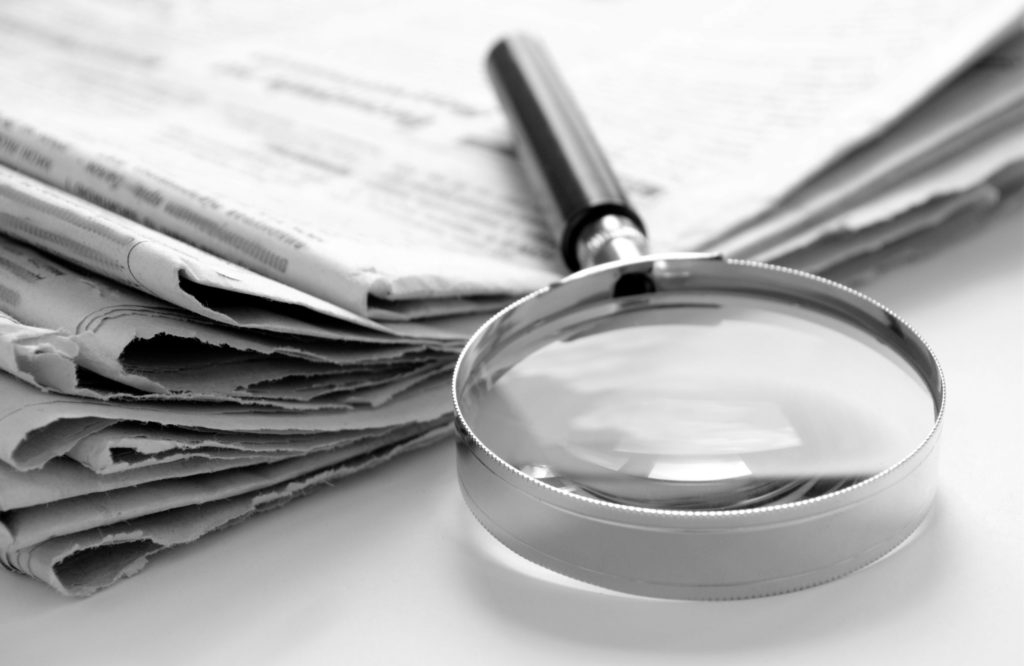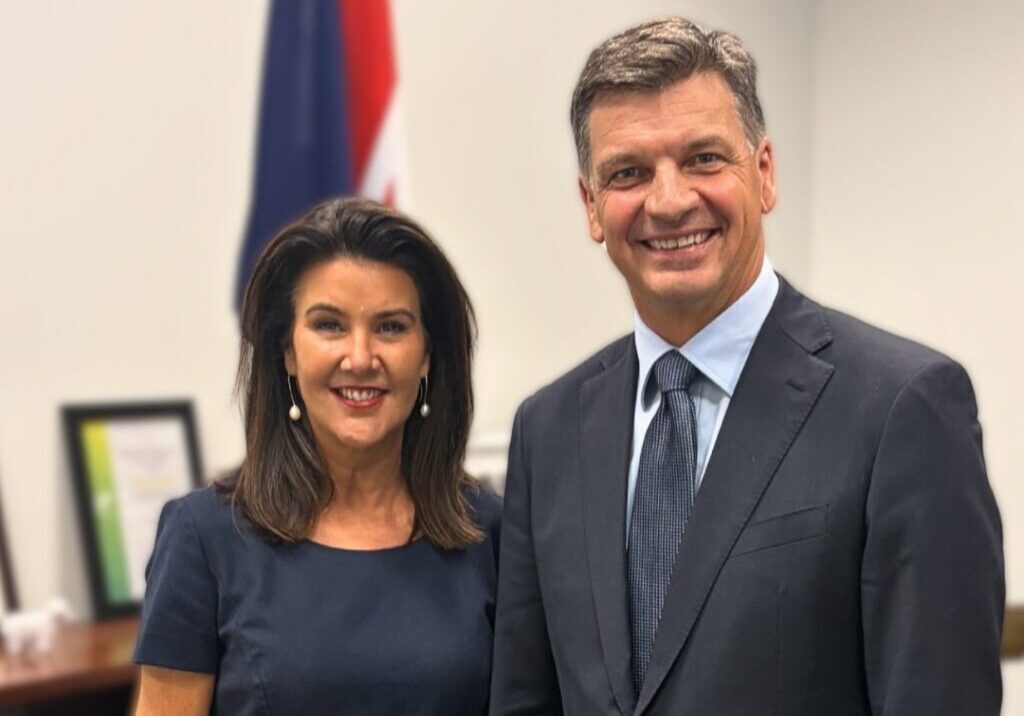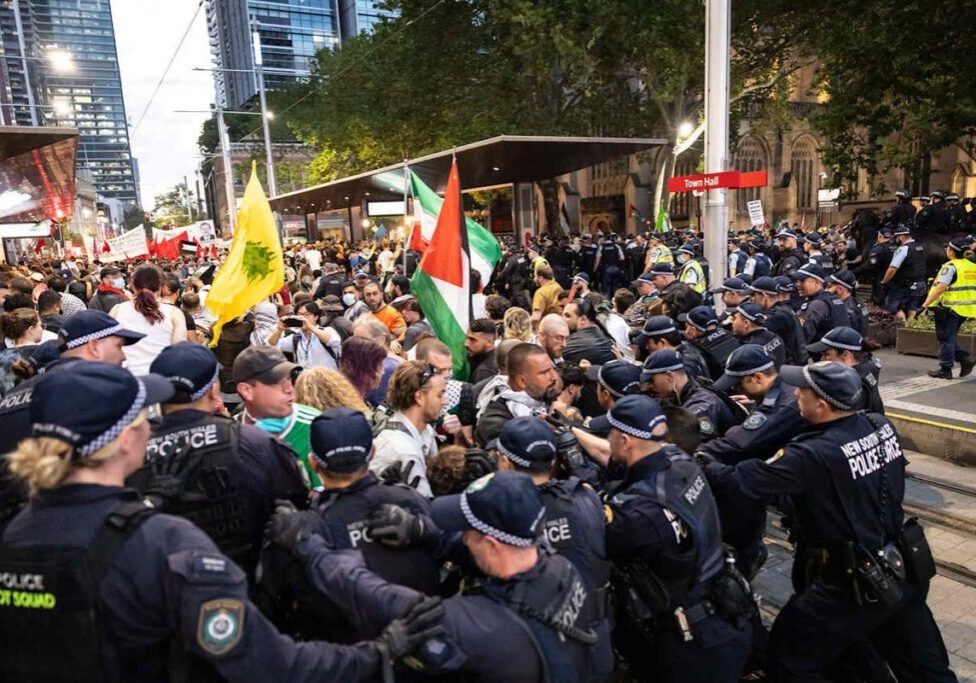Australia/Israel Review
Media Microscope: Explosive revelations
Mar 31, 2025 | Allon Lee

On March 10, the Australian Federal Police and NSW Police made a joint announcement that a string of attacks aimed at Jewish targets across Sydney in December/January – including the discovery of a caravan packed with explosives – were not motivated by antisemitism and were in reality part of an elaborate ploy by an overseas-based criminal mastermind seeking to trade information for reduced jail terms, and divert police resources. This set off a firestorm.
The Adelaide Advertiser (March 11) said, “These disgraceful incidents struck enormous fear into Jewish communities around the nation and stoked fears of division. We can only hope those responsible are brought to justice… It may not have been terrorism, but it was a crime of terror.”
The Daily Telegraph (March 11) said, “Any thought that this puts to rest the scourge of anti-Semitism is misguided. In fact, the case proves the opposite point, namely the Jewish community is indeed vulnerable. Because of this vulnerability, criminals have allegedly been able to parlay this fact into a business model. It suggests there are still segments of society that view Jews as perpetual targets, and hate as acceptable. It isn’t.”
The next day, the Daily Telegraph criticised federal Home Affairs Minister Tony Burke for accusing Opposition Leader Peter Dutton of politicising the incident: “If Peter Dutton is guilty of politicising the story, then what does that say about NSW Premier Chris Minns who described the plot as ‘terrorism’, or Prime Minister Anthony Albanese, who agreed with that designation and said it was ‘designed to create fear in the community?’”
Writing in the Australian (March 15), Strategic Analysis Australia director Peter Jennings went further, noting that Prime Minister Anthony Albanese knew early in February that “the police viewed the caravan as a con job – not a genuine bomb threat. A political decision was taken not to put that information to the opposition… I have never seen a government deliberately withhold such a salient fact from an opposition on a domestic security issue.”
Sydney Morning Herald State Political Editor Alexandra Smith’s analysis (March 13) included NSW Jewish Board of Deputies president David Ossip’s observation that “this plot could only succeed by exploiting already-strained social cohesion and unprecedented levels of antisemitism in Sydney.”
A report by the Australian Financial Review’s Paul Karp (March 12), quoted Dr George Foster, President of Southern Sydney Synagogue, which was graffitied in January, saying, “I can’t see it in any other way than it was antisemitic… It seems rather bizarre that they’ve only targeted Jewish buildings.”
The Australian (March 14) called the Police “Keystone cops”, noted that the alleged mastermind came from a Middle Eastern country engaged in active hostilities with Israel, and said the attacks looked possibly like a “double-header of anti-Semitic revenge and criminal opportunity.” The editorial added, “Rejecting anti-Semitism as a possible motivation … repeats a big mistake that sends the wrong message that already is being eagerly exploited by bad actors, including some Greens politicians.”
The paper’s NSW editor Stephen Price (March 13) accused NSW Greens’ Sue Higginson of taking advantage of the “fake terror” label” to attack the NSW Government. Price’s report included NSW Deputy Police Commissioner David Hudson’s admission that “the actual ideology behind the person that tasked [those who were hired to carry out the 15 attacks] is still under investigation.”
On March 17, AIJAC’s Joel Burnie, writing in the Daily Telegraph, expressed scorn for the flawed assertions by some that antisemitism has been “exaggerated” and the attacks on the Jewish community over the last year-and-a-half were “not motivated by anti-Semitism.”
“Some… pretend that organised crime’s involvement… somehow makes antisemitism less of a problem. The fact that a crime syndicate jumped on the bandwagon doesn’t change the reality – it only reinforces it,” he said.
The next day, AIJAC’s Colin Rubenstein warned in the Australian that Australia’s political leaders from both sides of politics must do more in the next Federal Parliament to counter the antisemitism crisis that has afflicted this country since the October 7 attacks.
Australia’s multicultural success story, he said, has never been under greater threat and both major parties need to explain how they will prioritise restoring it – especially by re-emphasising multicultural policy frameworks which highlight the over-riding responsibility “to respect and maintain core Australian values” and to exercise rights only within that context.
Tags: Antisemitism, Australia, Media/ Academia, Terrorism






